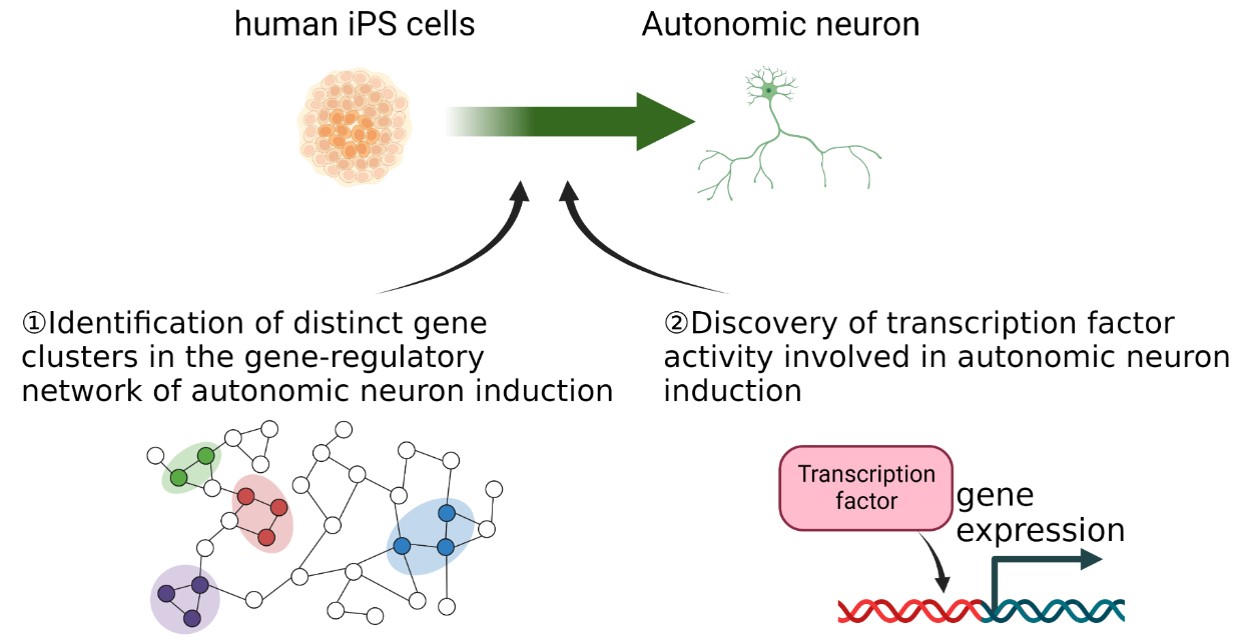Deciphering the Molecular Mechanisms of Autonomic Nervous System Neuron Induction
Yuzo Takayama (senior researcher), Yuka Akagi (Researcher), and Yasuyuki S. Kida (Group leader), have partly unveiled the molecular mechanisms controlling the differentiation of the human autonomic nervous system (ANS). The ANS plays crucial roles in regulating organ functions and maintaining homeostasis in the body. Therefore, developing techniques to induce the human ANS in vitro could contribute significantly to advancements in drug discovery and regenerative medicine. While our research group has been establishing protocols for inducing autonomic neurons from human induced pluripotent stem (iPS) cells (Takayama et al., Sci. Rep., 2020), the precise molecular mechanisms have remained elusive. In this study, we performed an integrative bioinformatics analysis on comprehensive mRNA data during the ANS differentiation process. We identified distinct gene clusters and changes in transcription factor activity that play key roles in ANS differentiation. We believe that these findings can lead to the identification of biomarkers for ANS differentiation and pave the way for the development of techniques enabling the high-quality and stable production of autonomic neurons in vitro.
The induction process of human autonomic neurons was analyzed using bioinformatics. Distinct gene clusters in the gene-regulatory network and transcription factor activities were identified.

Publication
- Title:Deciphering the Molecular Mechanisms of Autonomic Nervous System Neuron Induction through Integrative Bioinformatics Analysis
- Authors:Yuzo Takayama, Yuka Akagi and Yasuyuki S. Kida.
- Journal:International Journal of Molecular Sciences